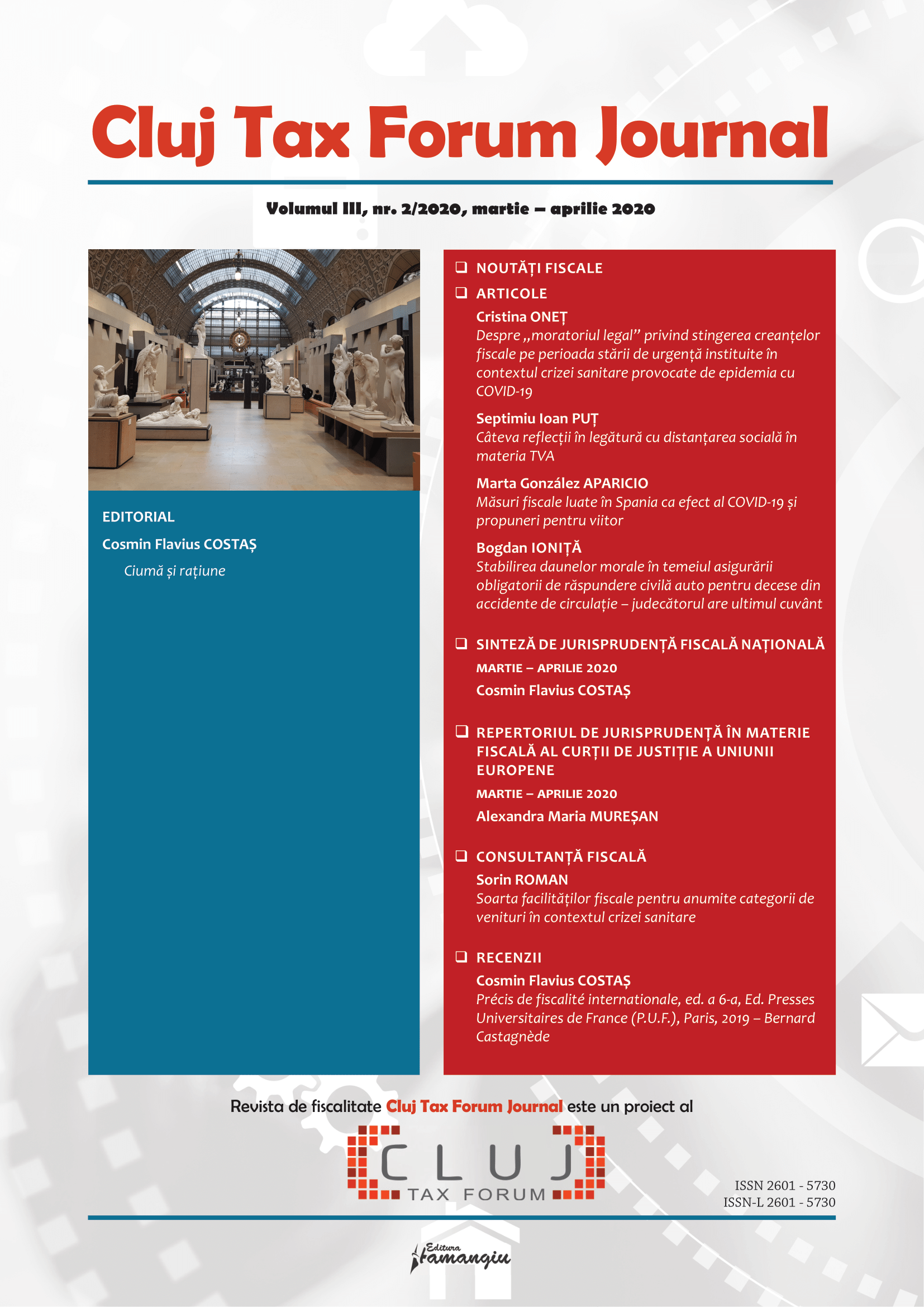Despre „moratoriul legal” privind stingerea creanțelor fiscale pe perioada stării de urgență instituite în contextul crizei sanitare provocate de epidemia cu COVID-19
On the “Legal Moratorium” Concerning the Payment of Tax Debts During the Emergency State Introduced in the Context of the Sanitary Crisis Generated by the Pandemic of COVID-19_
Author(s): Cristina OneţSubject(s): Law, Constitution, Jurisprudence, Commercial Law
Published by: Editura Hamangiu S.R.L.
Keywords: suspension of the forced execution of budgetary claim; legal moratorium; overdue budgetary claim;
Summary/Abstract: The present paper aims to respond to legislative problems arising from the adoption by the Romanian Government of fiscal measures designed to provide indirect support to citizens and companies of any kind operating in Romania. It is about G.E.O no. 29/2020 regarding some economic and fiscal budgetary measures which came into force on 21.03.2020 and which will produce its effects throughout the state of emergency established in the context of the health crisis caused by the COVID-19 epidemic, to which are added another 30 days. As the preamble to the normative act we are referring to speaks of the notion of “legal moratorium”, we have formulated some considerations regarding the nature and extent of this concept, showing that it refers both to a postponement of budgetary claims due to public budgets of the state and the administrativeterritorial units, as well as a suspension of the forced execution of these claims. This study also brings some conceptual clarifications on which the Romanian legislator does not show much rigor, such as the content and scope of the notions of tax claims and budgetary claims, showing that the relationship between them is from part to whole. At the same time, it is demonstrated that the legal provisions subject to analysis refer to the broader notion of budgetary claim. In conclusion, we can say that the provisions of G.E.O no. 29/2020, the object of the present study, represent a suspension with full effects of the forced execution for the budgetary obligations of the budgetary debtors during the state of emergency extended by another 30 days. Despite the clumsiness regarding the way of regulation on this subject, we consider that we are, however, in front of a real “legal moratorium” meant to protect the budget debtors from the pressure exerted by the imminence of a forced execution in the context of the economic blockages caused by the health crisis that humanity is facing since the beginning of 2020.
Journal: Cluj Tax Forum
- Issue Year: III/2020
- Issue No: 2
- Page Range: 10-19
- Page Count: 10
- Language: Romanian
- Content File-PDF

